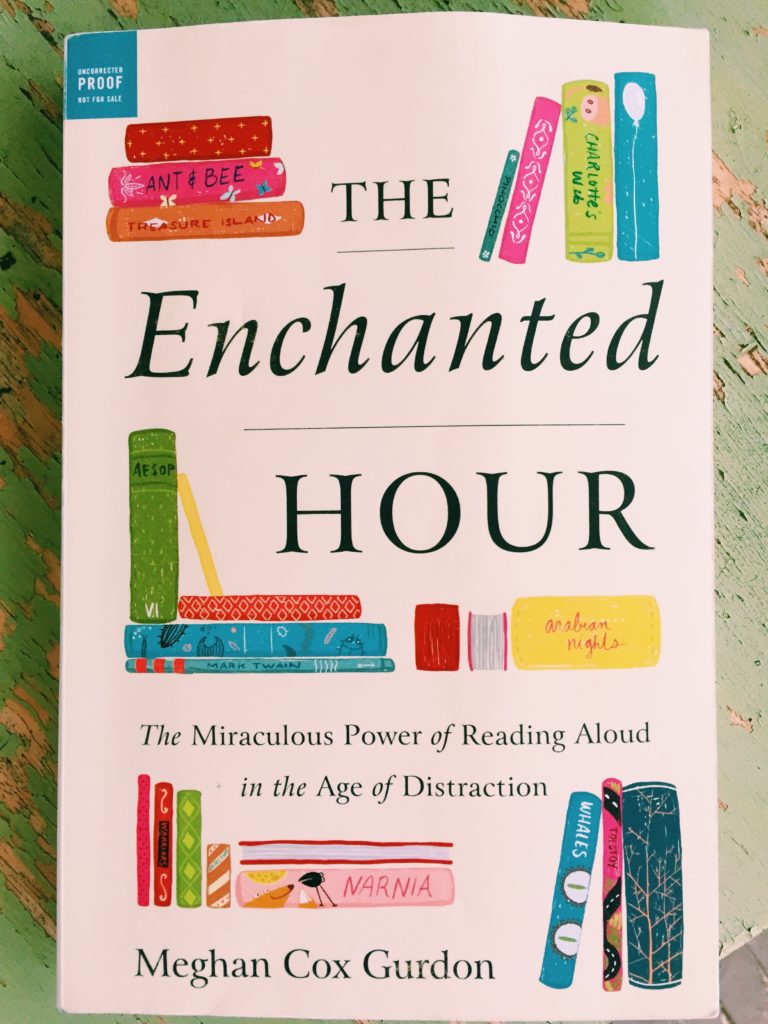
Whether it’s to the preemie babies in hospital incubators, young children piling onto a couch after dinner, the teenager who just came home from school, the couple on a road trip, or an elderly man with his daughter in a nursing home, there is universal power in reading out loud together. Hearts quiet, minds focus, and breath falls in sync as the reader opens a book and reads the first lines of a chapter.
Meghan Cox Gurdon, the Wall Street Journal’s children’s book editor, recently published a book titled “The Enchanted Hour: The Miraculous Power of Reading Aloud in the Age of Distraction,” on Jan. 8. Gurdon makes a case for bringing back the practice of reading out loud, especially in our fast-paced digital world. We have audiobooks, educational computer programs for kids, and TV, along with the general distraction of smartphones and tablets. Is reading aloud necessary, Gurdon asks? Is it possible to fight the distraction of our contemporary age? Gurdon says “yes.”
A mother, essayist, critic, and former foreign correspondent, Gurdon is no stranger to the distractions of technology and a busy work schedule, and is honest that taking time to read aloud as a family can be difficult. But while alternatives like audiobooks have benefits, nothing can beat the real human interaction of reading stories with one another. Gurdon quotes a clinical psychologist who says that reading together in a group creates “a bouquet of neurochemicals.”
“It should not be surprising, then, that the emotional rewards of reading aloud are wildly out of proportion to the effort it takes,” she writes.
This influence begins even before children are old enough to get any literary benefit.
Georgetown University researchers found that premature babies reacted strongly to the voice of their parents reading to them, building the connection between the parents and their children through reading.
The book included many anecdotal stories about children who benefited from being read aloud to. The parents of a teenager with severe autism who could not speak, but communicated through typing, loved when his mother read to him because he loved to be near her and experience the world through books and movies.
Young children learning to speak benefit far more from interaction with their parents than educational programs. Parents can respond to a child’s gaze and the children have “joint attention” with the adult reading to them. This means we have an enormous responsibility when around children, even babies. They notice if we are more focused on our iPhones than on them.
In ancient Greek tradition, a “rhapsode,” or a “stitcher of songs,” would recite full epics from memory, such as “The Iliad” and “The Odyssey.” For hundreds of years, people read exclusively out loud. Gurdon references Augustine’s “Confessions,” in which he marvels at seeing a bishop reading silently to himself. It confused his soldiers when Alexander the Great once read a letter from his mother silently, instead of out loud. The words on the page are the tools for the storyteller. Gurdon writes that the reader is another translator, bringing the words to life, and also bringing joy to others.
About 14 percent of adults in the world today are illiterate, but reading out loud gives others access to the delights of the oral tradition. Not only that, but it gives children and adults alike a respect for the past and a knowledge of cultural foundation. The fairy tales we read today have been passed on since the Middle Ages or before.
Gurdon quotes Jack Wang, an English professor at Ithaca College, saying “these stories belong to everyone. It’s not just the Western canon, per se, but everyone can feel a sense of ownership over these classics because these are great human stories.”
Even reading authors whose opinions are taboo today helps us to understand others and the times they lived in.
Through anecdotes and research, as well as personal experience, Gurdon offers a lovely ritual that draws people together, enriches minds, an alternative to the isolating entertainment technology offers, and the epidemic of loneliness that has struck our world.
She summarizes near the end of the book, “literary art helps us live longer, and enjoying it together out loud makes us smarter, happier, and more contented. It may even be … that being the reader, the rhapsode, is in itself good for the body and soul.”

